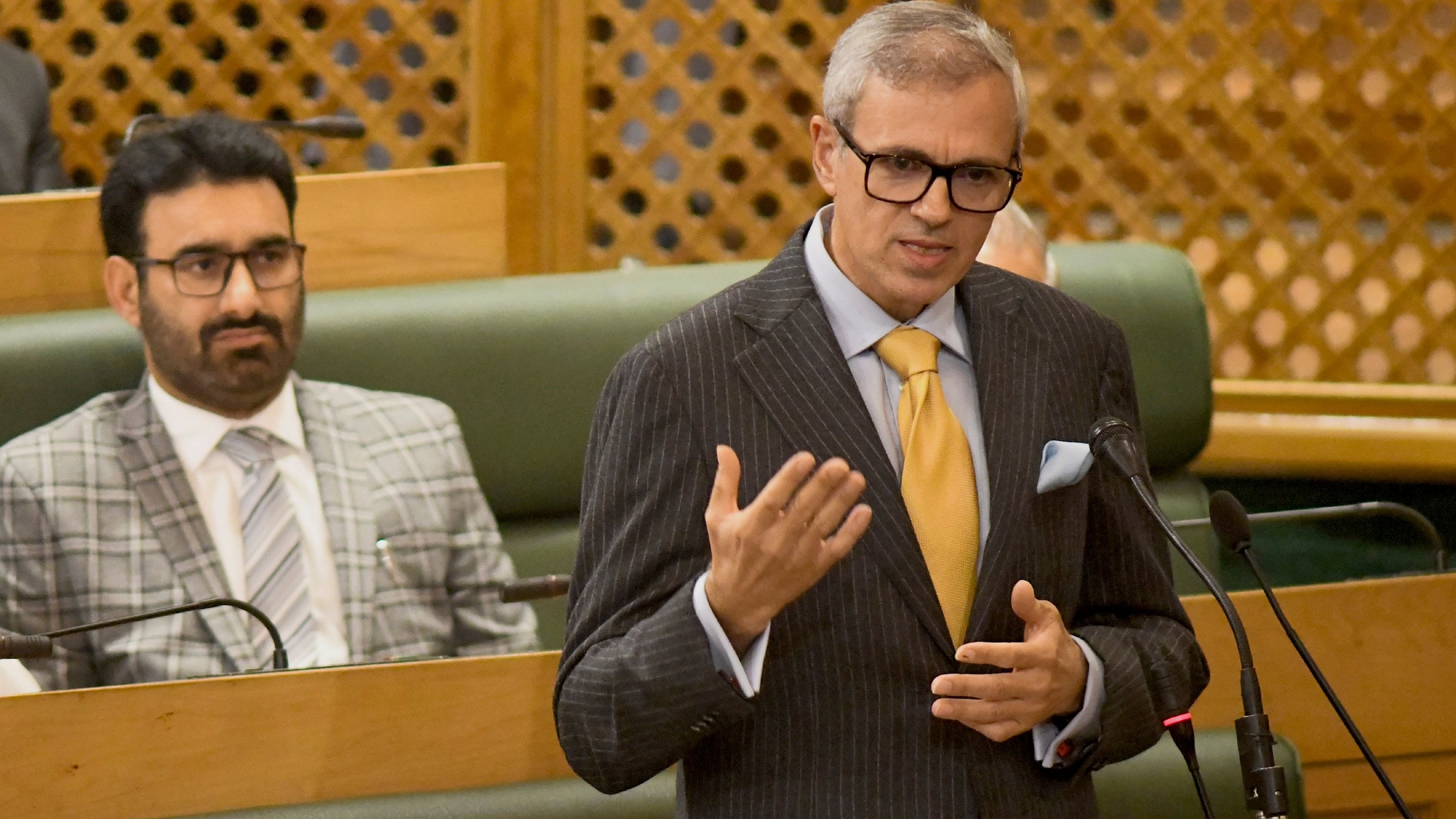
Jammu and Kashmir Chief Minister Omar Abdullah
Credit: PTI Photo
Srinagar: The Jammu and Kashmir Union Territory Legislative Assembly, on Wednesday, passed a historic resolution seeking the restoration of the erstwhile state's special status under Article 370, which was revoked in August 2019 by the Center.
The resolution, which was moved by National Conference (NC) leader and Deputy Chief Minister Surinder Kumar Chowdhary on the third day of the ongoing session garnered support from the ruling party despite strong protests from opposition BJP members. BJP’s Sunil Sharma opposed the resolution saying it was not part of the business.
The resolution read: “This Legislative /Assembly reaffirms the importance of the Special status and constitutional guarantees, which safeguarded the identity, Culture, and rights of the people of Jammu and Kashmir and expresses concern over their unilateral removal.”
“This Assembly calls upon the Government of India to initiate dialogue with elected representatives of people of Jammu and Kashmir for restoration of special status, constitutional guarantee and to work out constitutional mechanisms for restoring the provisions.”
“This Assembly emphasizes that any process for restoration safeguard both national unity and the legitimate aspirations of people of Jammu and Kashmir,” it further reads.
In August 2019, the central government took the historic yet controversial decision of abrogating Article 370 of the Constitution. This provision had granted Jammu and Kashmir special autonomous status, allowing the region significant control over its internal affairs, including its own constitution and flag, while excluding matters such as defence, communications, and foreign affairs.
Along with this constitutional change, the state was reorganized into two separate Union Territories: Jammu and Kashmir, which retained a legislative assembly, and Ladakh, which was established as a Union Territory without a legislature.
The move to abrogate Article 370 was met with widespread opposition from regional parties, including the National Conference, People’s Democratic Party (PDP), and others, who have argued that the decision undermines the autonomy and identity of the region.
On December 11 last year, a five-judge constitution bench of the Supreme Court upheld the decision, directing the holding of elections in the region by September 2024 and the restoration of statehood as soon as possible.